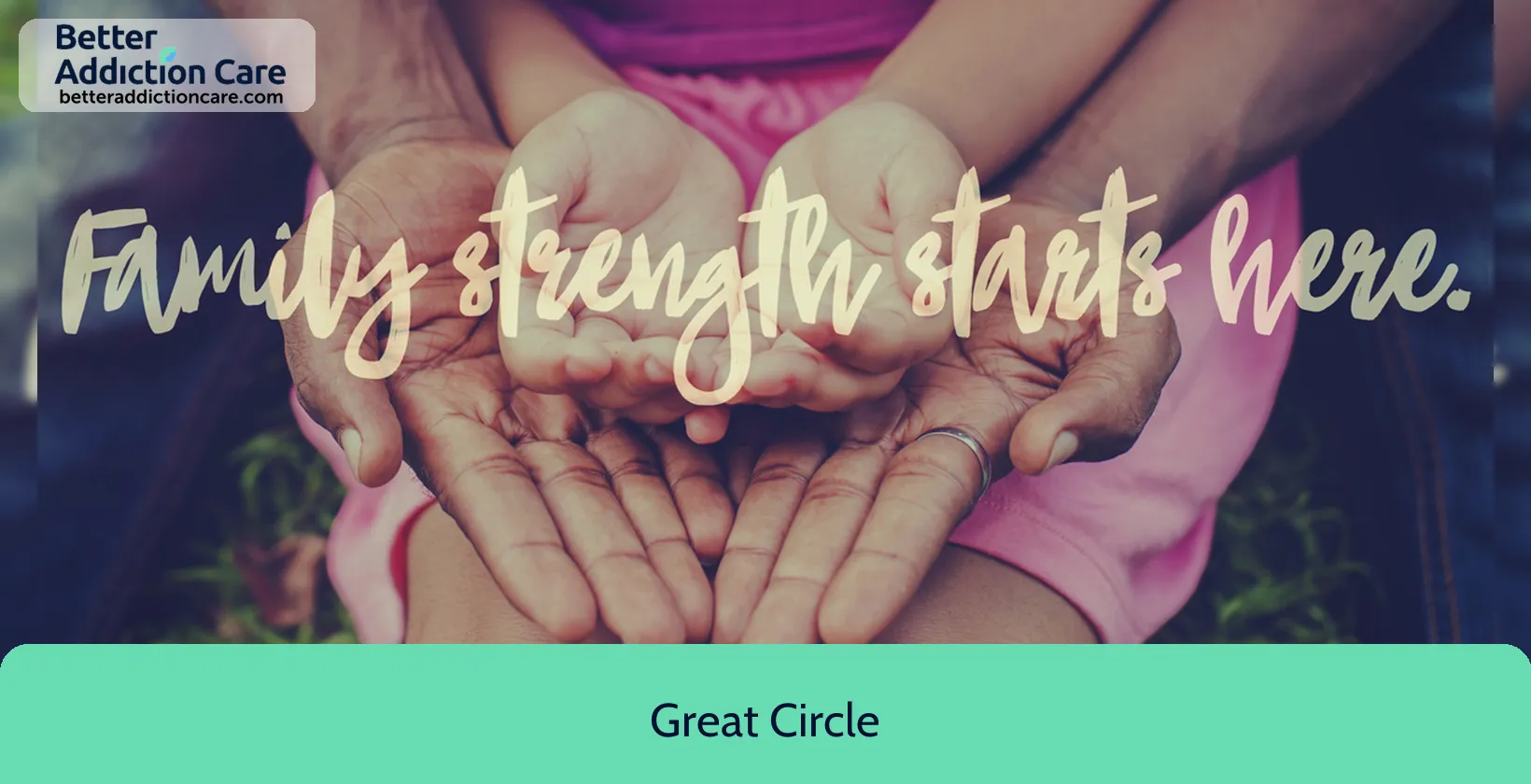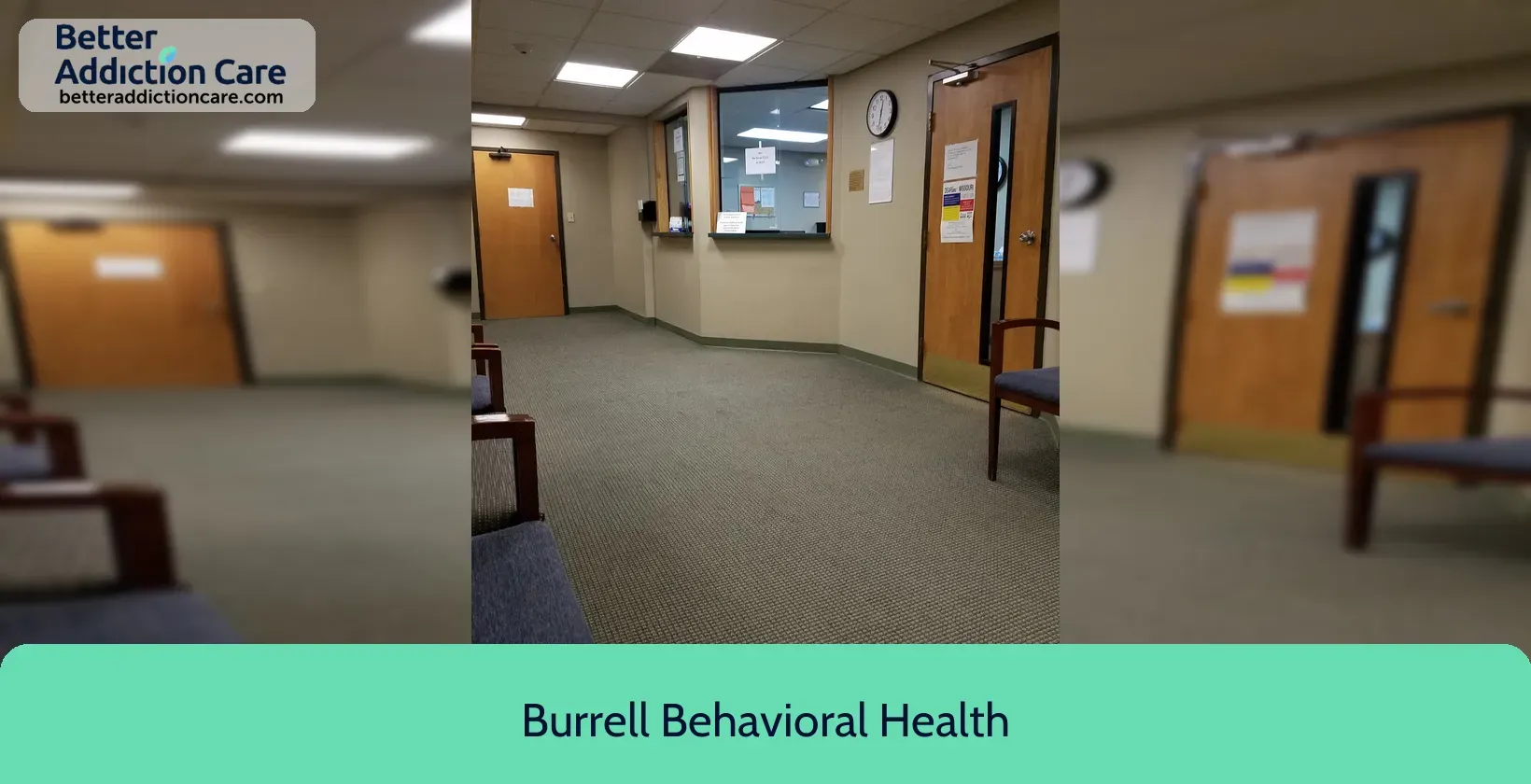Burrell Behavioral Health 1805 East Walnut Street

Overview
Burrell Behavioral Health 1805 East Walnut Street is a mental health treatment center for people seeking treatment near Boone County. As part of their treatment modalities for recovery, Burrell Behavioral Health 1805 East Walnut Street provides couples/family therapy, group counseling, and cognitive behavioral therapy during treatment. Burrell Behavioral Health 1805 East Walnut Street is located in Columbia, Missouri, accepting cash or self-payment for treatment.
Burrell Behavioral Health 1805 East Walnut Street at a Glance
Payment Options
- Cash or self-payment
- Medicaid
- Medicare
- Private health insurance
- Federal military insurance (e.g., TRICARE)
Assessments
- Screening for tobacco use
- Comprehensive mental health assessment
- Comprehensive substance use assessment
Age Groups
- Young adults
- Adults
- Seniors
Ancillary Services
- Assertive community treatment
- Case management service
- Psychosocial rehabilitation services
- Suicide prevention services
Highlights About Burrell Behavioral Health 1805 East Walnut Street
6.65/10
With an overall rating of 6.65/10, this facility has following balanced range of services. Alcohol Rehabilitation: 8.00/10, Drug Rehab and Detox: 6.00/10, Insurance and Payments: 6.00/10, Treatment Options: 6.61/10.-
Alcohol Rehabilitation 8.00
-
Treatment Options 6.61
-
Drug Rehab and Detox 6.00
-
Insurance and Payments 6.00
Treatment At Burrell Behavioral Health 1805 East Walnut Street
Treatment Conditions
- Mental health treatment
- Substance use treatment
- Co-occurring Disorders
Care Levels
- Outpatient
Treatment Modalities
- Couples/family therapy
- Group counseling
- Cognitive behavioral therapy
- Dialectical behavior therapy
- Telemedicine/telehealth therapy
Ancillary Services
Languages
- Sign language services for the deaf and hard of hearing
Special Programs
- Clients with co-occurring mental and substance use disorders
- Persons 18 and older with serious mental illness (SMI)
Get Help Now
Common Questions About Burrell Behavioral Health 1805 East Walnut Street
Contact Information
Other Facilities in Columbia

6.65

6.62

7.66

7.37

7.33

7.42

6.65

7.39
DISCLAIMER: The facility name, logo and brand are the property and registered trademarks of Burrell Behavioral Health, and are being used for identification and informational purposes only. Use of these names, logos and brands shall not imply endorsement. BetterAddictionCare.com is not affiliated with or sponsored by Burrell Behavioral Health.
